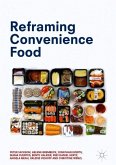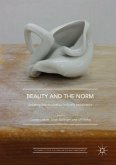This book questions the simplistic view that convenience food is unhealthy and environmentally unsustainable. By exploring how various types of convenience food have become embedded in consumers' lives, it considers what lessons can be learnt from the commercial success of convenience food for those who seek to promote healthier and more sustainable diets. The project draws on original findings from comparative research in the UK, Denmark, Germany and Sweden (funded through the ERA-Net Sustainable Food programme). Reframing Convenience Food avoids moral judgments about convenience food, and instead provides a refreshingly novel perspective guided by an understanding of everyday consumer practice. It will appeal to those with an interest in the sociology and politics behind health, consumerism, sustainability and society.
"This is to be applauded for it retains intellectual integrity while providing relevant evidence that supports educating nonacademic attitudes about the matter, especially among those who are spending public funds. ... The book will also be informative for policy makers and practitioners, and educative for students, enabling them to see the argument for reframing common sense assumptions-including some with which they themselves might have started their undergraduate studies." (Anne Murcott, Review of Agricultural, Food and Environmental Studies, Vol. 100, 2019)








